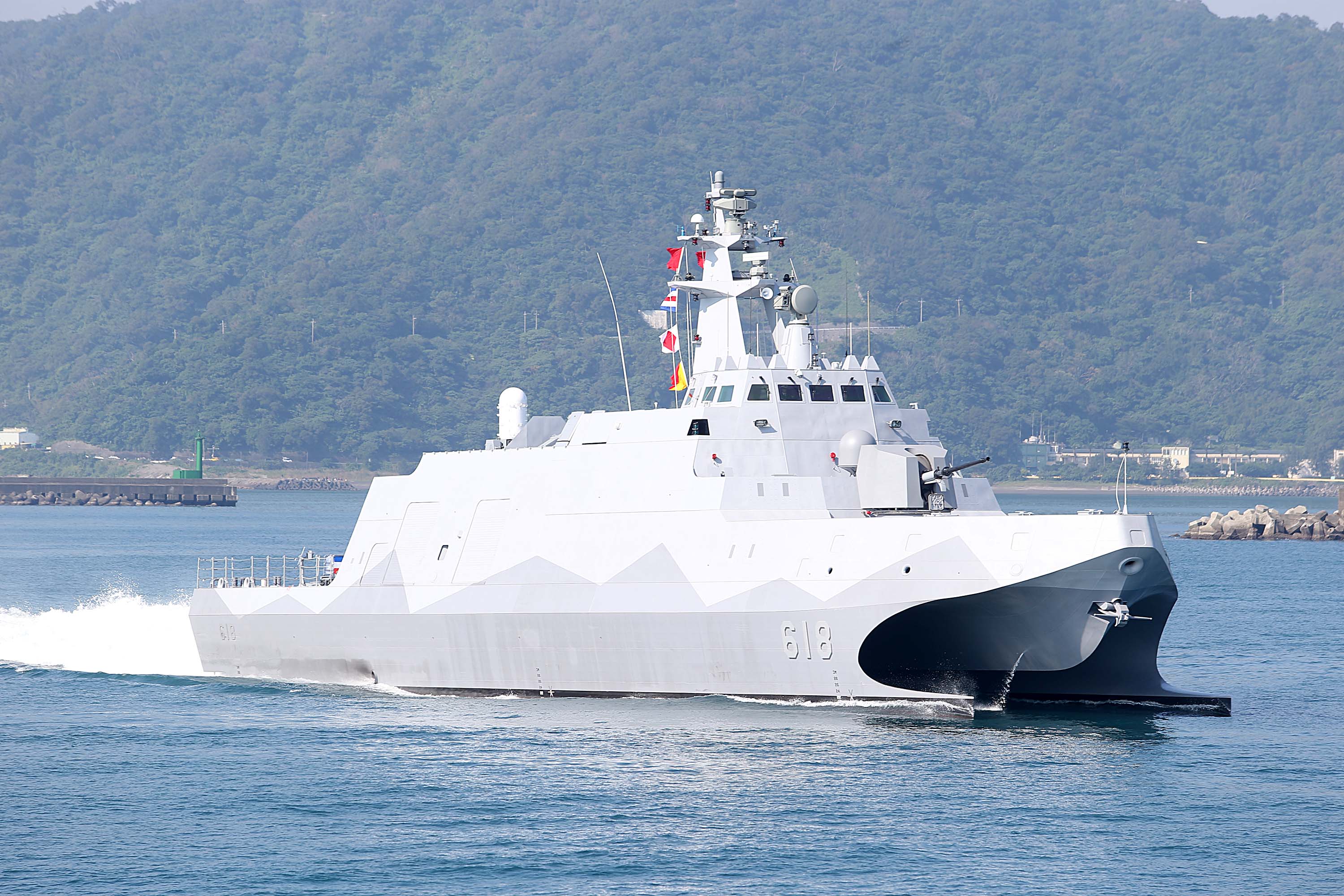
Taiwanese president Ma Ying-jeou attended the commissioning of the 500-ton Tuo Jiang and the 20,000-ton combat support ship Panshih at the RoC Navy’s naval base at Zuoying, Kaohsiung on the southern part of the island, reported Jane’s Defence Weekly.
Ma said the two ships “demonstrates the island’s success in improving its shipbuilding capabilities” and will help “extend the navy’s maritime combat capabilities.”
Tuo Jiang was deliververd to the RoC Navy in December following construction at the Lung Teh Shipbuilding at the harbor of Su-ao.
The corvette can travel at speeds of up to 40 knots fielding a domestically built anti-ship missile.
“Armaments reportedly include the Hsiung Feng III (HF-3) ramjet-powered supersonic anti-ship missile,” reported Jane’s last year.
“The HF-3, manufactured by the defence ministry’s Chung-Shan Institute of Science and Technology (CSIST), is touted as Taiwan’s most potent weapon against the People’s Liberation Army Navy’s (PLAN’s) aircraft carrier.”
Panshih is designed to preform a variety of tasks including personnel transport, maritime rescue and humanitarian aid in addition to its support roles.
The commissionings mark an uptick in Taiwan’s domestic naval shipbuilding as a hedge against an expansion of China’s People’s Liberation Army Navy (PLAN).
Taiwan has been supported militarily largely by the U.S.
Last year, the U.S. approved an arms sale act allowing Taiwan to aqiure four decommissioned Oliver Hazard Perry-class frigates for the RoC Navy.
China has discouraged other countries from aiding the island nation in arms sales.
In November, Lockheed Martin and Italian shipbuilder Intermarine S.p.A. announced they would help the RoC Navy build a class of six mine counter measure (MCM) ships, drawing ire from Beijing.
“China firmly opposes foreign arms sale to Taiwan and any form of military technology exchanges and cooperation between Taiwan and foreign countries. This position is clear-cut and consistent, said ministry spokesman Hong Lei said following the announcement of the deal.
“We ask relevant countries to respect China’s core interests, adhere to the one-China principle, neither sell arms to Taiwan in any form nor assist Taiwan in developing its military equipment, and take concrete actions to support the peaceful development of cross-strait relations and peaceful reunification of China.”
Taiwan is also pursuing a domestic submarine program after the U.S. has stalled in fulfilling a 2001 agreement to help the RoC Navy capitalize on its four aging diesel electric attack boats (SSK).





